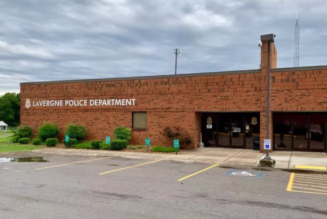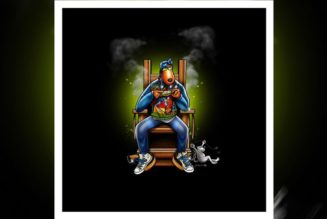
“It’s Not Just Me, It’s Everybody” starts small: just Natalie Mering’s voice and piano, and a line about feeling alone at a party. Within a verse or so, its scope has widened to encompass something like the human condition itself. Mering’s narrator wonders whether any of her fellow partygoers really know her, whether they can see her for who she truly is. As the arrangement slowly gathers layers of woodwinds and strings, she realizes that her very isolation may hold the key to the connection she seeks. Perhaps everyone feels just as alone and unseen as she does; if so, they can at least be together in their aloneness. “It’s Not Just Me, It’s Everybody,” like the album it opens, isn’t coy about what it’s trying to convey. When Mering reaches the crux of her revelation, she doesn’t dress it up with figurative language: “Mercy is the only cure for being so lonely.”
Mering has said that And in the Darkness, Hearts Aglow, her fifth album as Weyes Blood, is the second chapter in a trilogy that began with 2019’s spectacular Titanic Rising. In her telling, that album was a foretelling of catastrophe, and its follow-up is a dispatch from the center of it. Titanic Rising, for all its thematic weight, had the snappy exuberance of classic pop; And in the Darkness, Hearts Aglow is more like a collection of secular hymns. The rhythms are stately and unsyncopated. The arrangements are lushly orchestral. The songs are mostly around six minutes long, proceeding at the unhurried pace of guided meditations. And, perhaps owing to the sense of communion-via-solitude espoused in the first track, the lyrics are concerned with “we” nearly as often as they are with “I”: “We’re all lost,” “We don’t have time anymore to be afraid,” “We are more than our disguises/We are more than just the pain.”
The album is at its best when Mering roots these universal observations in her perspective as an individual, whether via an unusual chord change or a finely textured image, like the lamplit campsite that appears in the chorus of “Grapevine,” or the boardwalk Ferris wheel that provides the setting for “Hearts Aglow.” Those are both love songs: not love in the sense of a benevolent force that binds together all living things, but love in the sense of a burning connection between two people. And though And in the Darkness, Hearts Aglow more overtly concerns itself with the former kind of love, it is frank and perceptive about the latter, both its power and its limits.
[flexi-common-toolbar] [flexi-form class=”flexi_form_style” title=”Submit to Flexi” name=”my_form” ajax=”true”][flexi-form-tag type=”post_title” class=”fl-input” title=”Title” value=”” required=”true”][flexi-form-tag type=”category” title=”Select category”][flexi-form-tag type=”tag” title=”Insert tag”][flexi-form-tag type=”article” class=”fl-textarea” title=”Description” ][flexi-form-tag type=”file” title=”Select file” required=”true”][flexi-form-tag type=”submit” name=”submit” value=”Submit Now”] [/flexi-form]










Tagged: Alternative Music, music blog